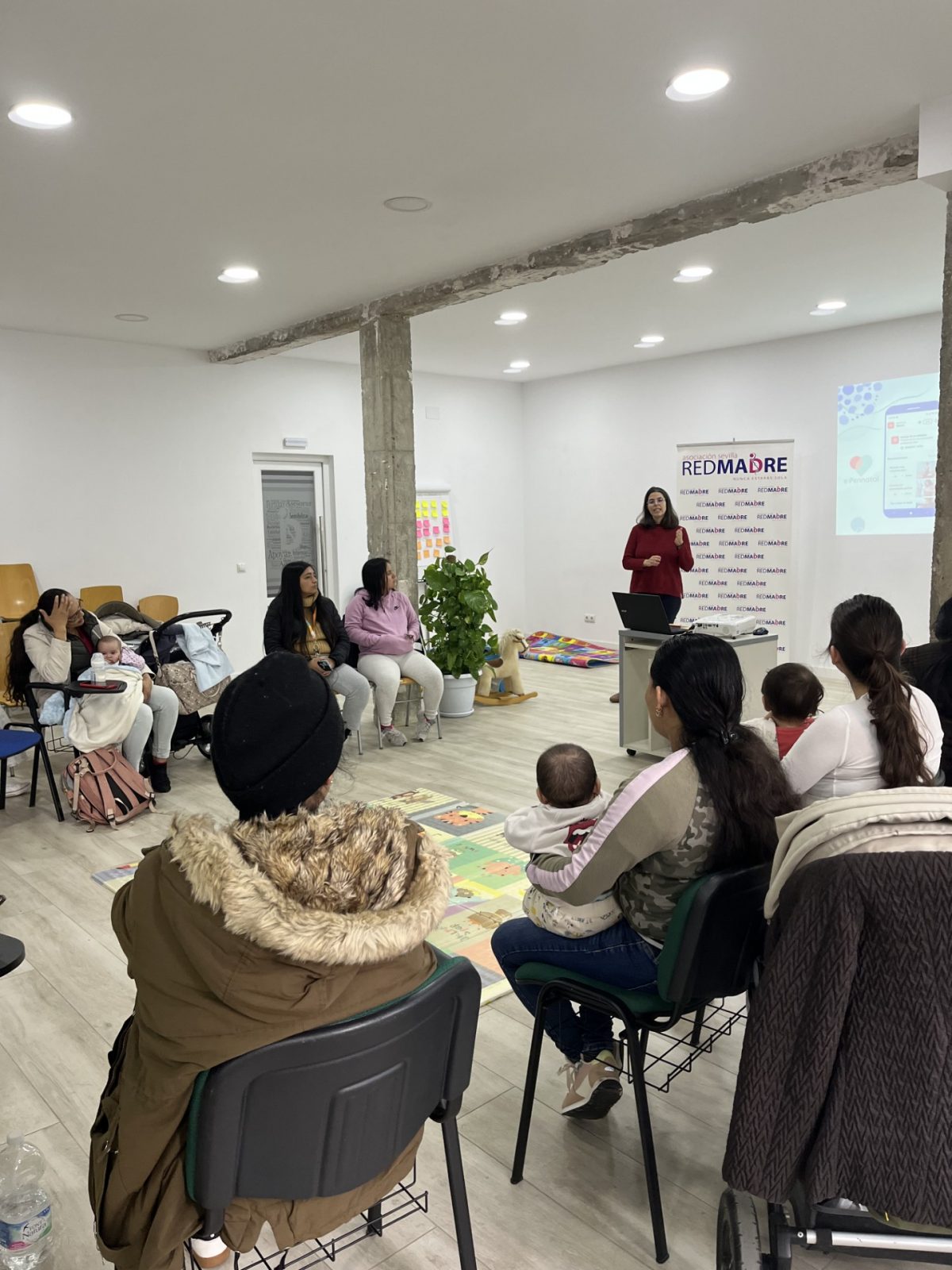On December 18th, REDMADRE Sevilla organized a workshop titled “Mental Health During the Perinatal Period,” a training session that proved to be of great interest and utility for the women served by the organization. The event was led by Dr. Rosalba Company Córdoba, a psychologist and researcher in perinatal mental health, with the collaboration of psychologist Ana Belén Naranjo. This workshop was aimed at pregnant women and mothers during the first year postpartum.
During the session, crucial topics related to mental health in pregnancy and postpartum were addressed. Dr. Company Córdoba emphasized the importance of having information about mental health, self-care, interpersonal relationships, and the need to ask for help when necessary. The main objective of the workshop was to provide participants with theoretical information and practical tools to promote their emotional well-being during these stages
Among the topics covered were the identification of common disorders such as depression and anxiety, as well as stress management. Additionally, self-care techniques were offered, such as relaxation and breathing exercises, and social support was encouraged through communication with partners, family members, and professionals. A space of trust was created where participants could share experiences, and information was provided about professional resources for those who needed additional help.
Objectives
The workshop aimed to empower mothers to feel accompanied and motivated to take care of their mental health, recognizing the importance of seeking support when necessary. The specific objectives of the workshop were:
- Inform about the importance of mental health during pregnancy and postpartum: Explain how emotions and psychological well-being affect both the mother and the baby during this stage.
- Identify signs of possible mental disorders: Raise awareness about common problems such as perinatal depression, anxiety, and stress, so that participants can recognize them in time.
- Provide practical tools for emotional management: Offer techniques and advice to reduce stress, anxiety, and emotional overload, such as meditation, deep breathing, and relaxation exercises.
- Promote self-care and emotional well-being: Highlight the importance of taking care of oneself, establishing self-care routines that include rest, exercise, and pleasurable activities.
- Strengthen the social support network: Promote open communication with partners, family members, friends, and health professionals so that mothers can share their emotions and receive emotional support.
- Discuss the normalization of emotional difficulties: Demystify negative emotions and allow participants to feel accompanied and understood, eliminating stigmas about mental health at this stage.
- Provide resources and practical advice: Suggest daily activities that can be incorporated into everyday life, such as organizing time for rest, the importance of a balanced diet, and managing realistic expectations.
- Facilitate a space for exchanging experiences: Create a trusting environment where participants can share their experiences, concerns, and solutions, fostering a sense of community and mutual support.
- Provide information on professional resources: Inform about available mental health professionals (psychologists, psychiatrists, counselors) and how to access them if additional support is needed.
- Empower participants to seek help when necessary: Reinforce the idea that asking for help is a positive and necessary action for the well-being of both mother and baby.
The workshop was a resounding success, providing pregnant women and recent mothers with the necessary tools and support to care for their mental health during the perinatal period. The session concluded with a sense of community and empowerment among the participants, who felt accompanied and understood in their journey towards emotional well-being
